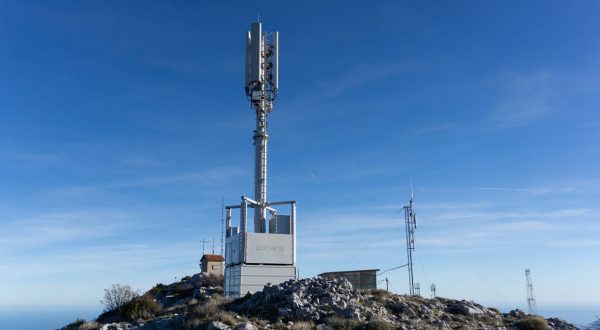Universities use digital technologies to boost their competitiveness
Reading time: 6 min
If they are to attract the best students and lecturers amid strong global competition, universities need to take digital technology on board. Axians supports many universities in the UK and Portugal.

Universities have always sought to attract the best students and researchers. The formula for achieving this is well-known: pleasant campuses, top-level lecturers, and recognised degrees. But this formula is no longer sufficient in the digital age. Students and lecturers also expect Wi-Fi access, IoT (Internet of Things) networks, better data security, and collaborative tools.
Digital transformation in the university environment is a hot topic in the UK. “The problem is that some administrators and lecturers struggle to understand how students use emerging technologies. This hampers a university’s ability to offer enhanced services driven by digital tools,” explains Andy Butcher, UK Research and Education Sales Manager at Axians UK.
Axians, the VINCI Energies brand specialising in new communication technologies, helps universities to improve their IT infrastructure so that researchers and students can access it by whatever means they use to connect to university sites (whether desktop computer, smartphone or tablet).
Security is another key feature of the services delivered by Axians UK, which works with around 15 universities in the UK and Ireland. “Educational institutions need to ensure that the intellectual property related to the work of their researchers and students is properly protected. Universities are increasingly using the cloud, which makes it all the more important to secure this data,” says Andy Butcher.
Secure “tunnel” for delivering data
Axians UK has installed several applications to facilitate data transfer between the campus and an off-site data centre for the renowned London School of Economics and Political Science, 74% of whose student population comes from outside the UK. “We helped them open a highly secure ‘tunnel’ to carry data, a sort of enhanced VPN (virtual private network). We then migrated them to the IP v6 protocol, which triples the security level – we call it a burger protocol as it has several layers of security – when people send their data to the cloud,” points out Andy Butcher.
Axians also contributed to securing Geant2 (Gigabit European Advanced Network Technology 2), the high-speed European network dedicated to the research and education community, which, for instance, carries research data produced by CERN, the European Organization for Nuclear Research.
Furthermore, Axians UK supplied the infrastructure, maintenance, and security applications for Jisc, a British not-for-profit organisation that manages the high-speed Janet Network (19 million users) connecting universities and schools throughout the UK.
Students expect the same level of quality of service on their campus that they receive everywhere else.
Andy Butcher believes that “digital transformation has changed the relationship between universities and their students and staff. The Internet and widespread use of mobile devices mean that students expect the same high service levels on campus as they receive everywhere else – and they will rate their university according to its ability to adapt to evolving digital technologies.”
More than a campus – a small city
The new campus of the Nova School of Business and Economics near Lisbon, Portugal, also plans to offer students and lecturers the service level they have a right to expect. The site is more than a campus – it is a small city with amenities including beach facilities, green spaces, a library, a gymnasium, banks, restaurants, and a post office.
“The concept is: you don’t go to school here, you live here,” says Rui Calmão, Business Unit Manager at Axians Portugal. The VINCI Energies brand was selected to lead the joint venture that will install the ICT (information and communication technologies) infrastructure in the new buildings, which will accommodate 200 classrooms in a space of 84,000 square feet. The solution is based on IoT, edge and cloud computing, big data, smart campus technologies and, of course, top-notch cybersecurity.
“This new campus is the first project in a broader programme designed to revitalise the County of Cascais, Portugal’s third most populous region. Three thousand students are expected to start with and that number is expected to double very quickly. Half the students come from other countries such as Germany, France, and Italy,” says Rui Calmão.
The technology platform designed by Axians is now being rolled out. It takes a “living campus” approach. “The concept is to use the technology and, especially, the power of big data and sensoring/IoT to unveil business inputs and continuously close the gap between the campus service offering and the target consumer group (university students). Each student will have a personal dashboard that provides a 360º view of his behaviour on campus (with sensors that will provide specific information, like location and classroom occupancy) and that shows the real-live context with insights exploration and crowd measurement on campus” says the Axians Business Unit Manager.
In another innovation, the entire platform is supporting human-assisted artificial intelligence, including software-defined technologies, hyper-located wifi services, automated privacy controls, and hybrid cloud services, in addition to smart energy efficiency technologies, to improve accuracy and simplify back office processes.
The first phase consisted in building the platform and giving the students the basic services. The second consists in developing these truly “living services”. “We strive every day to deliver meaningful IT to businesses and society, and this project – stage after stage – is a dream come true, since we’re truly investing (and impacting) on the quality of Education in Portugal.” says Rui Calmão. The new Nova School of Business and Economics campus in Lisbon is expected to be up and running in September 2018.
12/04/2018


